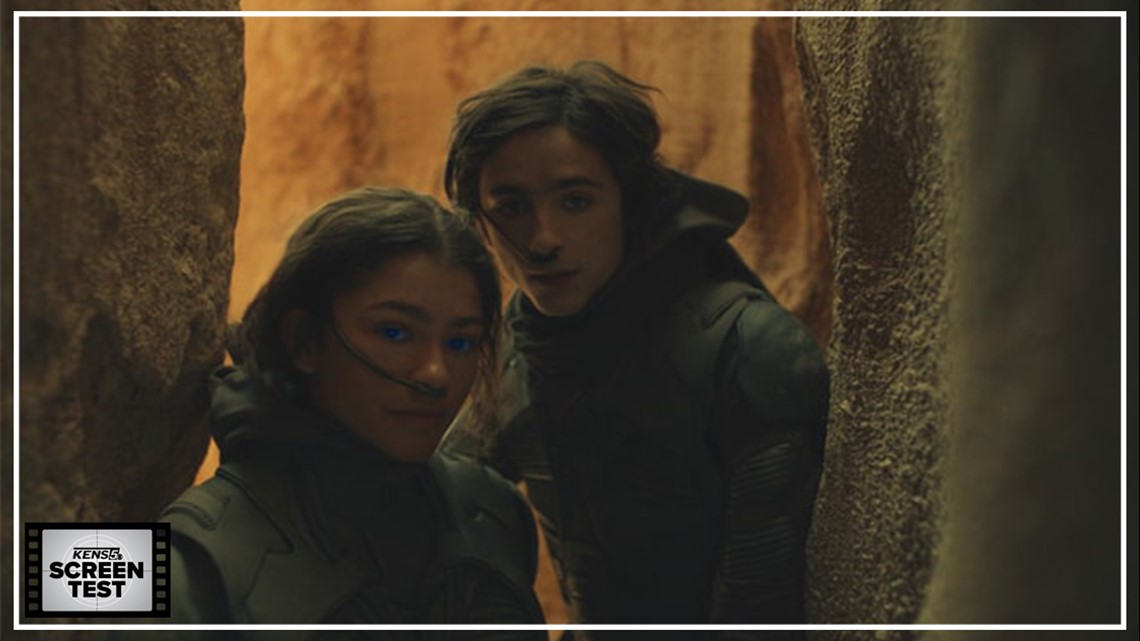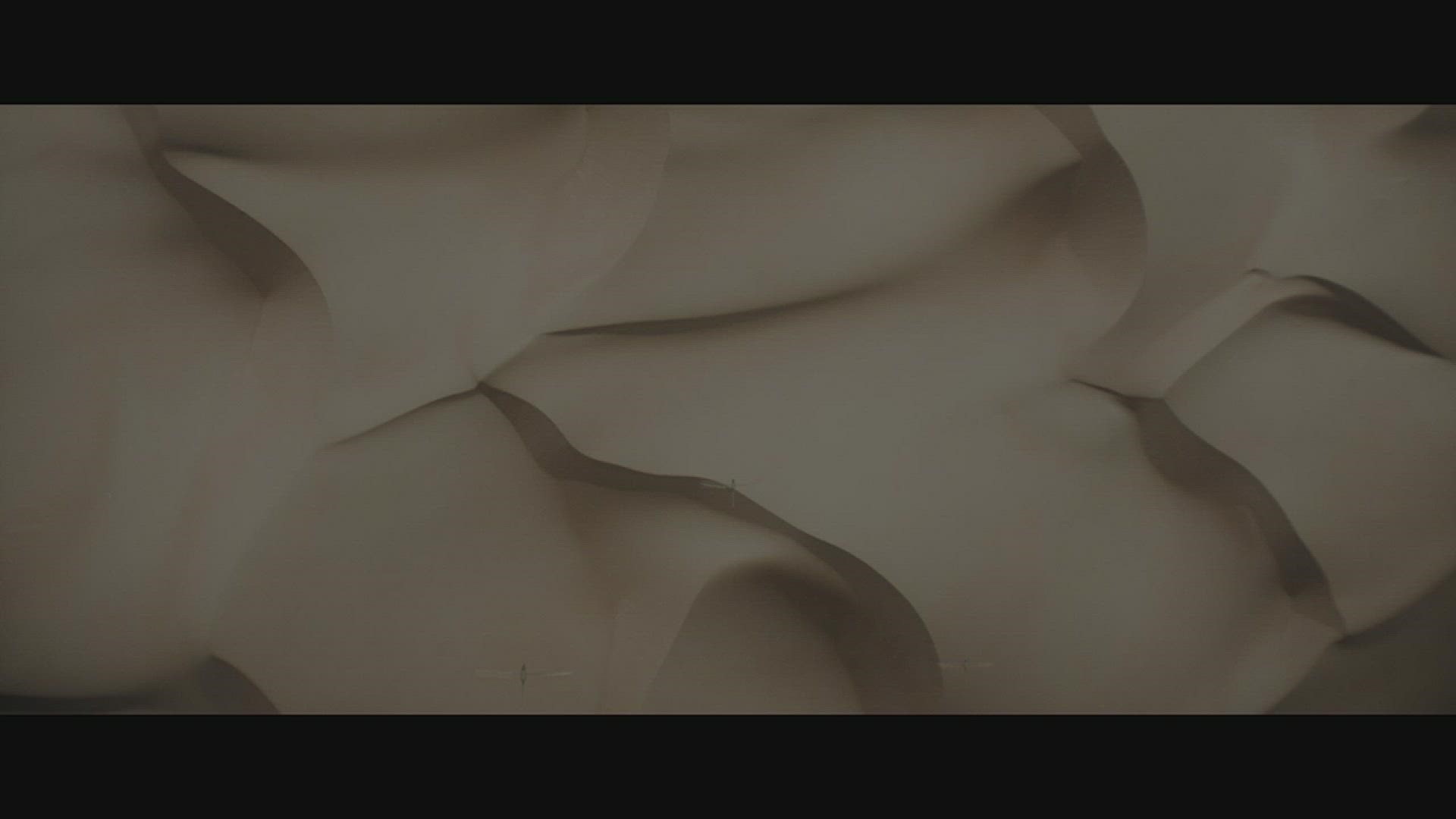Perhaps the best, or at least the most revealing, thing that can be said about Denis Villeneuve’s grandly mounted adaptation of Frank Herbert’s “Dune” is that he makes it look easy.
This isn’t to say any filmmaker could have shepherded the movie to life, nor that this installment announcing itself as “Part 1” doesn’t mean Villeneuve has been graced with a bigger sandbox in which to convincingly create set up this sandswept saga about intergalactic rivalry and schemes which span centuries. Rather, Villeneuve makes adapting the narrative intricacies and otherworldly enormity of the source material look easy by succeeding at probably the hardest thing: Committing wholeheartedly to an aesthetic vision so shamelessly grand and evocative that, at its best, this story of young Paul Atreides on the desert planet Arrakis feels like the story Villeneuve has been quietly working towards for the better part of the last decade.
In certain respects it’s true. Not for nothing has the French-Canadian filmmaker become accustomed to making movies no one else would think to try, for good reason; “Arrival” is a masterwork adapted from a short story exploring language in the pitch of arithmetic, and the alluring open-endedness of Ridley Scott’s seminal “Blade Runner” practically made an unspoken rule that no sequel would be attempted. Villeneuve, it seems, enjoys breaking those rules almost as much as he ignores them altogether. This is to say, he so earnestly makes the case his trademark brooding, brutal style is the right vehicle for this half-adaptation of “Dune” that at a certain point you begin to wonder if Villeneuve doesn’t see himself in its central prophecy. He, as is the case with Timothée Chalamet’s Paul, is a lad of great expectations.
That only makes us all the more vulnerable to be initially enticed and then wholly entranced by the implications of a “Dune” adaptation which suggests the inevitability of disaster while wondering if destiny is something not to glorify but to fear. The lens is wide enough to reconsider the worlds of wizards and hobbits, should we choose to apply it. But with Villeneuve peering through, “Dune” most readily translates as a fable where the lines between losing and finding oneself are blurred against the backdrop of royal responsibility, moral emptiness and, yes, giant sandworms whose underground gliding the visual effects team realizes here with screen-shaking suspense.
You’ll hear those beasts referred to a few times as “Shai Hulud,” one of several phrases either derived or borrowed outright by Herbert and this screenplay (by Villeneuve, Jon Spaihts and Eric Roth) from Middle Eastern vernacular. As was the case in 1965, so does it remain true here that “Dune” plays as allegory for resource-grabbing and interimperial tensions over valuable lands, only here oil becomes the ultracommodity spice and colonial powers become the houses Atreides and Harkonnen, the former of which has been assigned to take the reins in overseeing spice production on Arrakis from the latter. Contending evermore with the encroachment on their lands are the native Fremen, rebelling sometimes but mostly remaining in their isolated caverns while awaiting their emancipation. Meanwhile, Paul’s position as the perhaps-supernaturally inclined son of House Atreides leader Duke Leto (Oscar Isaac, conveying a sense of regal capability) is also the reason he attracts the attention of the Bene Gesserit, a group of suspicious and strictly female string-pullers of which his mother, Lady Jessica (Rebecca Ferguson, the ensemble’s soulful anchor), is a member.
Got all that? Because it’s just the start. “Game of Thrones” fans might find it easier to settle into the behind-the-curtains plotting which will culminate in a massive nighttime invasion, but the rest of the audience can rest easy even as other faces arrive to bolster this story’s rosters. Helped along by a bit of movie-opening exposition underscoring the movie’s strange structure, “Dune” largely succeeds at one of its tallest tasks: Coherently positioning the players who fill the superbly rendered palaces the plot only partially unfolds in, and establishing their various loyalties through elemental means. The Atreides’ home planet of Caladan is a peaceful oasis of green and blue, for instance, while the Harkonnens reside on a stormy orb where they prefer their decor inky and oppressive. On Arrakis, the new abode of House Atreides is a city of geometric black holes that look as though they were excavated from the dunes themselves.
That those pompously massive sets (designed by Patrice Vermette) shrink into feeble sandcastles when the camera (manned with the assured hand of frequent Villeneuve collaborator Greig Fraser) soars toward the vast stretches of desert surrounding them is no accident. To fully appreciate the grandiosity of “Dune,” these most memorable sequences seem to suggest, we must notice the smallness as well—the way House Atreides ships, with their fluttering steel wings or spherical shapes, shrink to the size of bugs on the screen as they approach massive sandworms; the delicate and ominous framing of a fallen patriarch's hand at this first installment’s violent climax. What Villeneuve understands in bringing Arrakis and the power struggle over it to cinematic life is that sheer scale is a malleable force, and a viscerally overpowering one in a story nearly devoid of lightness or displays of affection.


The epic’s investment in character resides on the edges of its spectacle, amid the juxtaposition of sandy mysticality and rumbling militarism. On one hand, Villeneuve’s faithfulness to Herbert’s novel extends to the rigid shallowness of this world’s denizens, ones defined almost exclusively by either calculation, greed, unquestioning responsibility or defiance. It’s difficult to imagine Chalamet imitating the space-opera buoyancy of Mark Hamill’s Luke Skywalker, but “Dune” is also no “Star Wars,” which means the young star isn’t trying to. His hushed portrayal begins to feel more purposeful when “Dune” shifts to Arrakis, and that may as well indicate how the young star’s settling into the role is meant to mirror our own settling into this world.
On the other hand, the shallowness of motivation may very well be part of the point, and part of the reason Villeneuve – whose stories tend to locate a resonance in the desperately bleak – seems so natural a translator for “Dune.” His knack for visual grandeur will keep him making films for years, but the bigger the universe, the bigger the pathos that’s needed to fill it. Undoubtedly there’s an initial awkwardness in seeing these characters shift their positions on such an intricately staged, intergalactic chess board with such passivity.
But passivity is not a minor thing. Paths to predetermined places don’t appear out of thin air, not even the lethal, blazing-hot air of Arrakis. And “Dune” perhaps gets stronger and more tantalizing as its 155-minute runtime creeps along because Villeneuve – through beautifully edited sequences of recurring imagery and hazy chronological leapfrogging – foregrounds these ideas of powerful figures who are merely biding their time for power to be snatched away, finding comfort in the cognitive dissonance emphasized by the director’s technical precision. Agency and destiny are in constant conversation when it comes to Paul’s story, even if it takes about an hour for “Dune” to render their dialogue legible. And at its core is a messianic figure increasingly agitated about whether he can ever measure up to the narrative and aesthetic bombast he – and us, by proxy – is enveloped in.
“Dune” is haunting in these implications, and nearly potent enough to reflect on an entire genre as Chalamet’s performance increasingly reflects Paul’s subdued tug-of-war. You could call the cliffhanger ending rousing if you want, but I’m not entirely sure if Villeneuve doesn’t intend for the final moments of “Dune Part 1” to be a red herring. After spending the last few years debating if the director had the goods to pull this massive project off, it’s more than a little appropriate that there exists the possibility we could spend forever wondering if this iteration of Arrakis’s would-be savior has the capacity to see his path for what it really is, even as his footing grows ever more confident.
"Dune" is rated PG-13 for sequences of strong violence, some disturbing images and suggestive material. It's now in theaters and on HBO Max.
Starring: Timothée Chalamet, Rebecca Ferguson, Zendaya, Oscar Isaac
Directed by Denis Villeneuve
2021
MORE REVIEWS:
- ‘The Rescue’ Review: ‘Free Solo’ directors recap a daring life-or-death operation
- ‘No Time To Die’ Review: Daniel Craig shines in his bloated, bleary-eyed James Bond finale
- ‘Venom: Let There Be Carnage’ Review: A breezy and most preposterous antihero sequel
- ‘Dear Evan Hansen’ Review: A Broadway hit makes its contrived and cloying leap to the big screen
- ‘I’m Your Man’ Review: Do androids dream of electric love?
- ‘The Card Counter’ Review: Oscar Isaac fills the shoes of Paul Schrader's latest soul-searching wanderer

